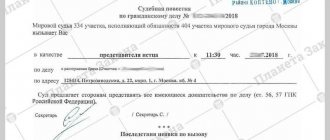Collection of alimony for the past period is quite possible. Let's take a closer look. Many young families cannot stand the test of everyday problems, so they are forced to file for divorce. If a couple has a child during their cohabitation, then in most cases he remains with the mother. There are situations when ex-spouses agree on the voluntary participation of the father in financial support of his son or daughter.
Payment of alimony is not fixed in court. Such trust is acceptable only for conscientious people. If it is not possible to reach an agreement or you have questions, then our lawyers will win for you in court to collect alimony, and will also advise you on other matrimonial issues.
Grounds for collecting alimony for the past period
Alimony is calculated from the date of filing the application with the court. According to Art. 107 of the RF IC, it is possible to recover alimony for the past in 2021 in the following cases:
- no alimony agreement has been concluded between the parties;
- the defendant canceled the child support order;
- the payer intentionally evaded alimony payments;
- the recipient tried to collect alimony through the court or enter into an agreement.
Note! You cannot collect alimony if you have a notarized alimony agreement. If the father does not comply with the agreement, you should immediately contact the bailiffs. This document is equivalent in legal force to a writ of execution.
Period for calculating alimony
For the past period, it will be possible to claim money for no more than three years.
The terms of alimony obligations are established depending on the situation:
- child support until adulthood.
- alimony for a spouse on maternity leave – until the end of maternity leave. If she starts working before the child turns 3 years old, the alimony payer can file an application to cancel alimony for the former spouse due to her ability to work;
- alimony for a disabled person - for the period of establishment of the disability group.
The period for payment of alimony for needy pensioners is set by the court individually. Most often, obligations are lifted when a spouse enters into a new marriage or when disability is removed (Article 120 of the RF IC).
When will the first alimony payments arrive?
The executive documents have been drawn up and handed over to the employer. How long should I wait for the first alimony payments? Then the writ of execution goes to the accounting department. The responsible employee carries out the document, after which alimony payments will be deducted from the payer automatically and sent to the recipient every month.
The deadline for receiving the first alimony is three days after the payment of the basic salary to a citizen (Article 109 of the RF IC). Money can arrive at any time within three working days, so the alimony recipient should take into account that you should not expect receipts on weekends.
If the enforcement documents were transferred to the bailiff service, then the collection time frame will be different. The bailiff must formalize enforcement proceedings, notify the defendant, provide him with the opportunity to make a voluntary settlement, and only then demand an alimony payment forcibly. The procedure for debt collection is given in Article 102 of the Federal “On Enforcement Proceedings” dated October 2, 2007 No. 229-FZ.
The exact terms of payments are not specified in the law, and, therefore, it is not possible to calculate the date of the first payment in this case. Payment of support for a minor child may.
Sources:
RF IC Article 107. Time limits for applying for alimony
RF IC Article 113. Determination of alimony debt
RF IC Article 109. Obligation of the organization’s administration to withhold alimony
Code of Civil Procedure of the Russian Federation Article 154. Time limits for consideration and resolution of civil cases
Federal Law “On Enforcement Proceedings” dated October 2, 2007 No. 229-FZ
Amount of alimony for the past period
According to the law, alimony for the maintenance of minors is established in a shared amount or in a fixed monetary amount.
If the payer has several sources of income, mixed payments are assigned. To collect alimony for the past time, several circumstances are taken into account:
- Availability of verified income.
- Lack of official income, unemployment.
- Providing property to pay alimony.
Let's consider each option in more detail.
Have verified income
If the alimony obligee can confirm earnings during the time when he had to transfer money and the recipient tried to claim it, the amount of the debt is determined as follows:
- The salary is set for the entire period. The data is taken from the 2NDFL certificate.
- Earnings are multiplied by interest depending on the number of children.
When receiving different salary amounts, recalculation is carried out monthly.
Example. In April, R. N. Panteleimonov earned 20,000 rubles, in May – 35,000 rubles, in June – 29,000 rubles. All this time, the ex-wife tried to agree with him on the payment of alimony for their common child, but he avoided obligations. Then the woman filed a lawsuit to recover money for the future and for the past period. 20,000 x 25% = 5,000 rub. – amount for April. 35,000 x 25% = 8,750 – for May. 29,000 x 25% = 7,250 rub. - for June. 5,000 + 8,750 + 7,250 = 21,000 rub. – the amount of debt for the past period.
The defendant is unemployed or works unofficially
If the father does not work, but is not registered with the employment center or works unofficially, then alimony is calculated in a fixed amount. TDS is a fixed amount proportional to the cost of living per child in the region. For example, alimony can be assigned in the amount of 1 monthly salary. That is, when collecting alimony for the past period of 3 years, the amount of payment will be 36 months x 1 RM.
Example. Ilyin K.L. After the divorce, he did not pay child support for his son. His ex-wife repeatedly tried to conclude an agreement, but the man did not come to the notary. Official work with Ilyin K.L. there was none, but he had a constant income from renting out 3 apartments. The woman went to court to collect alimony for the past period. She asked for alimony in the amount of the subsistence minimum for the child. The court determined that Ilyin K.L. must pay alimony from the date of divorce, that is, for 12 months. The amount of PM in the region was 11,000 rubles. That is, the father must pay: 12 x 11,000 rubles. = 132,000 rub. and monthly another 1 PM.
Repaying debt by providing property
If the debtor owns real estate or valuables, he can provide them to pay off the debt. But this can only be done by notarial agreement.
What is needed for this:
- Determine the amount of debt.
- Establish the value of the property. For this purpose, an expert assessment is carried out.
- Transfer property into the ownership of a minor under a notarial agreement on transfer in payment of alimony.
Important! It is necessary to draw up an agreement, not a deed of gift. Drawing up a gift agreement without an agreement on the transfer of real estate to pay off alimony debt does not exempt the payer from transferring money to the child. The document must indicate that the property is transferred specifically to pay off alimony debt. In this way, you can pay off debts for the past period or save yourself from payments before the child comes of age.
How to collect arrears of alimony through the court?
How to recover additional expenses for a child, in addition to alimony?
Conduct in court
Once the date for the first hearing is set, it is necessary to prepare for the trial by clearly defining your position and checking the sufficiency and conclusiveness of the evidence. You should not hope that the judge will take the position of the plaintiff and make a ruling based only on the words of the applicant.
First of all, the court proceeds from the documents that both parties submit for consideration. The absence of witnesses and documents that would allow one to judge the veracity of the content of the application will lead to refusal of satisfaction.
What evidence will the court consider?
The main factors that will allow the court to determine the collection of alimony and its amount are presented in evidence:
- Repeated attempts to obtain amounts for the maintenance and upbringing of the child throughout the entire period for which the plaintiff requests a penalty.
- Bringing evidence of the defendant’s evasion of his obligations, or a complete categorical refusal to provide assistance, aggression and a clear unwillingness to compromise when determining the financial support of a minor.
If it is impossible to prove a negative reaction of the defaulting parent, it is necessary to confirm the fact of the unknown location of the defendant and his absence at the address indicated in the registration.
The absence of payments must also be confirmed. Used as evidence :
- bank statements showing no receipts on behalf of the defaulting parent;
- payment documents about expenses for the child (receipts for kindergartens, clubs, sections, payments for medicines, medical services, etc.)
- statement of the defendant’s accounts (if it is possible to obtain them);
- employment documents (a certified copy of the employment document or the original employment document in the absence of work);
- extract from the place of registration of the defendant;
- all types of correspondence (including electronic messages on the Internet);
- if the defendant is hiding - information from the internal affairs bodies about the search.
Recommendations to the plaintiff
It is quite difficult to collect a base of evidence that would be recognized as indisputable in court.
However, the chances of a successful trial outcome will be high if you use the following tips for collecting evidence:
- if the conversation regarding alimony was conducted over the phone, a voice recorder of the calls will be confirmed;
- SMS and emails (printed) can be accepted as electronic documents;
- if negotiations were conducted in the presence of outsiders, witnesses are invited to the meetings;
- all correspondence with the second parent (it is advisable to use registered letters with notification of delivery or impossibility of delivery due to the absence of the addressee);
- The plaintiff-parent collects all receipts, checks that can confirm that it was he who bore the expenses for the child, paid for education, developmental clubs, and medical expenses.
In this situation, there is no exact regulated list, since each case is unique. The more documents related to the case are presented, the better.
Before speaking at the meeting, you need to think in advance about the answer to the question that the judge will definitely ask - about the reasons for the long silence and not contacting the judicial authorities earlier.
It is recommended to consider the following options for the plaintiff’s position::
- Not all citizens have legal knowledge and are well aware of their rights; for this reason, we can refer to the fact that the possibility of collecting alimony for the past period has only now become known.
- Many parents try to agree on payments amicably, avoiding the help of the courts. After all the arguments were exhausted and there was no hope for a settlement outside of court, the parent went to court, wanting to collect child support for the entire period.
- There may be other reasons why the plaintiff was unable to file sooner. The true reasons should not be hidden - the judge is interested in the issue in connection with the need to establish the true picture of the collection of alimony and will not violate the interests of the child protected by law.
The procedure for collecting alimony for the past period
Algorithm of actions:
- Try to negotiate a voluntary transfer of funds.
- Save correspondence and recordings of telephone conversations - they will be needed to claim money in the future.
- Collect documents and evidence.
- File a claim with the district court at the defendant’s place of residence.
- Come to the court hearing. The parties are notified of the appointed date in writing or via SMS a few days after the registration of the statement of claim and other documents.
- Receive a court decision and writ of execution. The claimant himself transfers the IL to the FSSP. The bailiff will initiate enforcement proceedings within 2 months.
To collect a debt, the bailiff must:
- conduct a conversation with the debtor so that he pays off the debt voluntarily;
- request information about his property from the traffic police, from Rosreestr;
- request account information;
- send the writ of execution to the accounting department of the enterprise where the debtor works.
If the debtor is officially employed, then payments will be transferred automatically no later than 3 days after receiving the salary. Up to 70% of his salary will be withheld.
If a man evades obligations, an FSSP officer has the right to seize bank accounts, prohibit travel abroad, and petition for the confiscation of a driver’s license if the amount of debt exceeds 10,000 rubles. Repossession of property and subsequent sale at auction is carried out if the amount of debt is approximately equal to the cost of housing.
Who is eligible to apply?
Collection of alimony payments in 2021 for the past period can be made not only for minor children, but also for other relatives. Among them:
- spouses and former spouses during pregnancy or maternity leave, caring for a disabled child or an adult disabled child of group 1 since childhood;
- disabled former spouses who became disabled during marriage or within a year after divorce;
- needy former spouses who retired within 5 years after the divorce, if the marriage was long (5 years or more).
A spouse or former spouse can recover money for their maintenance if they prove in court that they asked the debtor to help them financially (Part 2 of Article 107 of the RF IC).
Jurisdiction
In 2021, the claim with the remaining documents will be filed in the district court:
- at the place of registration of the child’s father;
- at the mother’s place of residence, if the child is small or she has a disability;
If the man’s registered address is unknown, you should contact the court at the location of his property or at the last known address of his residence.
Adult relatives can only appeal to the district court at the place of registration of the defendant.
Statement of claim (sample)
The law does not establish the form of an application for the collection of payments, but it must comply with the requirements of the Code of Civil Procedure in terms of content.
The claim includes the following:
- name of the court;
- Full name, addresses of the plaintiff and defendant;
- passport details of the plaintiff;
- information from marriage registration and divorce certificates;
- data from children's birth certificates;
- an indication of the facts of deliberate evasion of child support payments by the defendant;
- links to evidence and legislative norms that allow you to claim money for the past time; claims - to recover payments from the defendant in a fixed or shared amount;
- a list of proposed documents.
- At the end there is a date of compilation and a signature.
Sample claim
Evidence base
When submitting documents and at court hearings, you will need evidence confirming that the defendant evaded collecting alimony.
It could be:
- Recordings of telephone conversations, witness statements, copies of paper letters, electronic correspondence. In them, the plaintiff must ask to buy clothes, shoes for the child, or transfer money for the maintenance of the child.
- The fact that a man evades transferring funds for a child is a complete lack of financial assistance on his part.
Unscrupulous fathers believe that they can transfer 1,000 - 2,000 rubles each so that they cannot collect alimony for the past. In fact, if the father’s income allows him to transfer more, then alimony will be collected, despite the minimum payments.
Required documents
When going to court, in addition to the statement of claim, the following is provided:
- calculation (it is carried out by the plaintiff independently to substantiate the claims);
- passport;
- an extract from the house register that the child lived with his mother;
- salary certificates;
- certificates of marriage and divorce, birth of children.
If a representative acts on behalf of the plaintiff, you will need his passport and a notarized power of attorney.
Payment of state duty
Based on Art. 333.36 of the Tax Code of the Russian Federation, the plaintiff is exempt from paying state duty. In cases of alimony, it is paid only when the amount of payments is revised or alimony obligations are canceled under Art. 120 IC RF.
Procedure for calculating alimony payments
When applying to a judicial authority, current and subsequent alimony payments are made in accordance with the following basic steps:
- the plaintiff’s appeal to determine the amount of payments, as well as the period during which funds for the maintenance of children were not allocated by the defendant;
- civil analysis of the existing evidence base to determine the accuracy of the statement of claim, as well as the legality of the seizure of funds;
- making a decision that specifies the following points: the monthly amount of alimony payments, the amount of debt for the previously expired period, the period during which the defendant is required to repay the debt.
When determining the amount of alimony in a civil procedure, not only factors such as the amount of wages or other, including unofficial sources of income, are taken into account, but also the level of security of the plaintiff.
The above aspect is due to the fact that even if parents divorce, children should receive the full level of material well-being to which they are accustomed. Thus, the rights of a minor who needs financial support from both parents should not be infringed in any way.
How can a father avoid paying child support for previous years again?
Often, after a divorce, parents agree that the man will transfer money voluntarily (without court and without agreement).
But after a few years, the woman goes to court and collects alimony for the past period. She explains that the money was transferred as a gift for her or as a loan, and the father did not give money for the maintenance of the child. There are real cases of judicial practice where such requirements were satisfied. To avoid fraudulent actions on the part of your ex-wife, when paying alimony voluntarily (without court or agreement), you must:
- transfer money to a bank card and indicate in the purpose of payment: Child support for (full name of the child) for January 2021;
- transfer money in cash only if the ex-wife writes a receipt confirming receipt of money for alimony.
Receipts from the bank for the transfer do not need to be saved. They spoil quickly. If you need proof, you can always take a bank statement. And the ex-wife’s receipts must be kept for at least 3 years.
Conditions for collection
When deciding to demand parental responsibilities, the other parent must evaluate the validity of his claims.
- When presenting financial claims by the plaintiff, the following rules for alimony penalties must be taken into account:
- The defendant can only be a person officially recognized as the father or mother of a minor, which is confirmed by information about paternity or maternity in the birth certificate.
- It is possible to collect alimony for previous years, if paternity has been established in court, only from the moment when the citizen was officially recognized as a parent.
- The issue of recovery can be considered in court only if the case has not been considered in court before and there is no corresponding resolution. Otherwise, forced collection of debts will be carried out by bailiffs on the basis of a court order and open enforcement proceedings.
- It is also impossible to recover for the past period, having in hand a settlement agreement signed by both parents, because the very essence of the agreement is an expression of goodwill and a common opinion regarding the determination of child support.
- What is the penalty for failure to pay child support? Types of restrictions
When preparing for trial, special attention is paid to preparing a comprehensive evidence base, without which the chances of collecting alimony from past periods are very low. To determine how long alimony can be collected, you need to collect materials. For the court, evidence will include: letters, certificates, audio and video material, testimony of witnesses.
Arbitrage practice
A review of judicial practice allows us to draw the following conclusions:
- If the court determines that during the disputed period the father financially helped the child, the court will refuse to satisfy the demands. Decision of the Leninsky District Court of Smolensk on January 23, 2021 in case No. 2-456/2020.
- If the defendant admits the claims, then the court collects alimony for the past period without additional evidence. Decision of the Central District Court of Sochi dated November 28, 2021 in case No. 2-5583/2019.
An example from judicial practice. The Martynovs divorced in 2017, leaving a common minor son with their mother. The woman applied for a restraining order. The father filed an objection to the court order and overturned it. The former spouses agreed on voluntary payments. Payments were received only for 2 months, then the ex-husband stopped communicating. For a year, the woman tried to demand alimony from him, but he did not respond to messages and calls.
In 2021, the ex-wife filed a lawsuit to recover payments through the court. Since the mother had taken measures to collect child support earlier, the court satisfied her demands. The funds were collected over the past 3 years. To calculate the debt, we took the average salary in the region - 29,000 rubles.
Calculation procedure: 29,000 x 12 (months) = 348,000 rubles. 348,000 x 25% (amount of alimony for one child) = 87,000 rubles. – the total amount of debt for the year. 87,000 x 3 (years) = 261,000 rubles. 29,000 x 25% = 7,250 rub. – payments for 1 month. Thus, alimony for the current period in the amount of 7,250 rubles will be withheld from the payer. per month and alimony for the past time. The total amount should not exceed 70% of the total income of the alimony holder.
Results
The deduction of alimony from wages can be voluntary or carried out by force of law (based on an agreement of the parties or with the involvement of bailiffs). Alimony should not exceed the maximum standards established by the Labor Code of the Russian Federation and legislation on enforcement proceedings.
Unlock access to the private part of Clerk with a Premium subscription. Get hundreds of webinars and online courses, unlimited consultations and other proprietary content for accountants.
Hurry up to subscribe with a 20% discount until October 15, 2021. Read more about “Premium” here.
Life situations
For a detailed analysis of the specifics of collecting alimony for the past, it is enough to familiarize yourself with the most common situations.
If the child is over 18 years old
You can collect child support for the past period until the child reaches 21 years of age. While the child is 18 years old, alimony can be collected for 3 years, at 19 years old - for 2 years, at 20 years old - for one year.
Example. The couple divorced when their daughter was 12 years old. From that moment on, the woman tried to claim alimony from the man, but went to court when the child turned 18 years old.
Evidence of attempts at a peaceful settlement is presented. Despite the fact that the plaintiff tried to obtain payments for 6 years, alimony was collected only for 3 years.
If the mother did not try to collect child support
If the mother did not take action to collect child support, the court will refuse to satisfy the requirements. This means that if the father did not know about the child, then he should not pay child support for previous years.
Example. The plaintiff filed a demand for the collection of alimony payments for the last 3 years, indicating that she and the defendant had not lived together for 12 years, but did not formally file a divorce.
It was established that the man did not know about the presence of a daughter, and his wife did not try to voluntarily demand money from him.
The latter is the basis for refusing to satisfy the claim, but the defendant himself invited the plaintiff to draw up an alimony agreement and indicate in it the amounts for repaying the debt for 3 years, as well as the amount of alimony for the future.
If paternity has been established
If paternity was established a year ago, it will be possible to claim funds only for this period, and not for 3 years, since the payer was not legally the father before.
Example. The child was born in 2021, there is a dash in the “father” column. His mother began living with his biological father in 2021, divorced in 2020 and decided to establish paternity. The examination showed a relationship. After this, the woman filed a claim for the recovery of alimony for the past period, i.e. for 2021, 2021 and 2021. The claim was denied, since obligations to provide financial support for children arise at the time paternity is established. If it had been received at the time the child was registered at the registry office, it would have been possible to recover the money.
Differences between alimony for the past period and alimony debt
There is a significant difference between these two concepts, although many people confuse them. To understand the differences in detail, just look at the comparison table:
| Alimony for the past period | Alimony debt |
| The recipient tried to claim money from the payer for alimony obligations, but to no avail | The payer was ordered by a court decision or other document to pay alimony, but he did not fulfill this obligation |
| Money is collected only for the last 3 years | The debt is collected for the entire period from the moment of formation and is not limited to 3 years |
| Termination of alimony obligations is made in connection with the death of the payer; it is not inherited | Debts for alimony are inherited. Inherited property may be seized for collection if its value is equal to the amount of debt. |
Deadlines for paying alimony
From what time does child support begin? As a general rule, the obligation to pay child support is imposed on the separated parent from the moment of divorce . But, in some cases, alimony may also be imposed within a marriage - for example, if the parent does not actually live with the child.
In both cases, the requirement to pay alimony must be supported by a voluntary agreement or an appropriate court decision.
The obligation to pay alimony terminates automatically in the following cases:
- if the child is 18 years old or has acquired legal capacity before this time in accordance with a court decision;
- if the child has been adopted;
- if the recipient or payer of alimony has died;
- if the child has committed an intentional crime against the payer.
You can read about the procedure for divorce if you have children and various situations related to this in this article.
If an agreement was concluded between the parents, then the payment of alimony may be terminated for other reasons specified in the document: for example, it may be a specific period or a certain event, for example, the child receiving an independent income.
In some cases, the amount of alimony may be reduced , but not terminated, for example:
- the payer lost his job, became disabled or retired;
- the amount of child support is too large to actually meet the needs of the child;
- the child began to receive income;
- the parent living with the child has remarried, but the child has not been adopted.
Thus, the payment of alimony begins from the moment the court order comes into force or the agreement begins, and ends in accordance with the law or in connection with the occurrence of circumstances taken into account in the agreement.
Lawyer's answers to private questions
My son is 20 years old. I have been divorced for a long time and have not applied for alimony. Can I collect child support now?
If the child is 20 years old, then you can only recover child support for the past period. That is, for 1 year.
My ex-husband and I entered into an agreement. But he hasn’t paid alimony for a day, can I collect money for the past time?
To do this, you need to submit an agreement to the bailiffs. Explain that the agreement was not fulfilled. The money will be collected from the date of conclusion of the agreement.
I have a daughter born in 2021 from a woman with whom we were not married. The cohabitant established paternity through the court. Can she collect child support starting in 2021 if I transferred money to the child every month?
Alimony can be collected from the date the court decision enters into legal force.
I received a court order for alimony, but my ex-husband canceled it. If I file a lawsuit now, will alimony be collected only when the court decision comes into force?
You can indicate in your claim a demand for the collection of alimony for the past period. In this case, the court will order alimony from the date of filing the application for the issuance of a court order.
The ex-husband promised to transfer 10,000 rubles each month for 2 children. to each. But after six months the money stopped coming. Can I collect child support for the months when he did not pay money?
You can file a claim to collect alimony for the past period if you tried to get it. If during the months when he didn’t pay, you didn’t call, didn’t write, didn’t ask, didn’t go to court, then the court will refuse to satisfy the demands.
Legal assistance
Legal support for such disputes is extremely important, which is associated with a low percentage of satisfied payments. As practice shows, it is the inability to collect a complete package of evidence that stands in the way of the recipient of funds. An experienced lawyer will be able to fairly assess the situation, prepare an effective mechanism for protecting the client’s interests, and also tell you how to collect the necessary documents.
On the other hand, with the help of a lawyer, the defendant will be able to prove that he did not shirk his obligations and provided all possible assistance to his child.
Unfortunately, there are frequent cases of abuse of their rights to alimony by mothers of children. To prevent illegal withholding of funds, you need to confirm that financial payments for children have been made repeatedly over the past period. This will help you make copies of bank transfer receipts, receipts and witness statements.
How can you prove your appeal to the debtor?
The key basis for the possibility of collecting debt from previous periods will be evidence of regular appeal to the defendant for receiving maintenance funds. Such evidence can be established by the testimony of witnesses, as well as written documents.
If requests for funds were expressed orally, it is necessary to have several witnesses and eyewitnesses to the conversations. Also, witness testimony can confirm the fact of refusal to pay funds voluntarily.
Among the written evidence, one can highlight personal correspondence between the plaintiff and the defendant, as well as certified pages from citizens’ electronic correspondence. If the debtor did not respond to the plaintiff's letters, it is necessary to prove that they were received properly.
Package of documents
When submitting an application, you must attach documents that serve as evidence of the plaintiff’s position:
- Documents on the identities of the plaintiff and defendant (if available).
- Marriage or divorce certificates.
- Birth certificates of children.
- Certificates of income of the parties.
- Health papers.
- Documents about attempts to resolve the conflict voluntarily (demand with a person’s signature confirming delivery or postal documents confirming dispatch).
- Papers confirming the plaintiff’s expenses (for example, invoices for the purchase of medications).
- Motions to call witnesses.
- Power of attorney, if the application is submitted by a representative.
When filing a claim, you must attach copies, and bring the originals to the hearing for certification. When submitting an order, originals or notarized copies must be attached.
Is there a procedure
Russian legislation assumes that a claim can be brought to court within the established limitation period. For some categories of cases, an individual period is established, but for alimony obligations a general period of three years is applied.
During this period, the recipient of alimony may apply to the court to collect it. But it is not possible to recover amounts for a longer period (except in cases of voluntary payment by the payer). The reason for this is the norms of the Family Code, which directly contain a condition on the impossibility of collecting alimony for a period exceeding three years.











